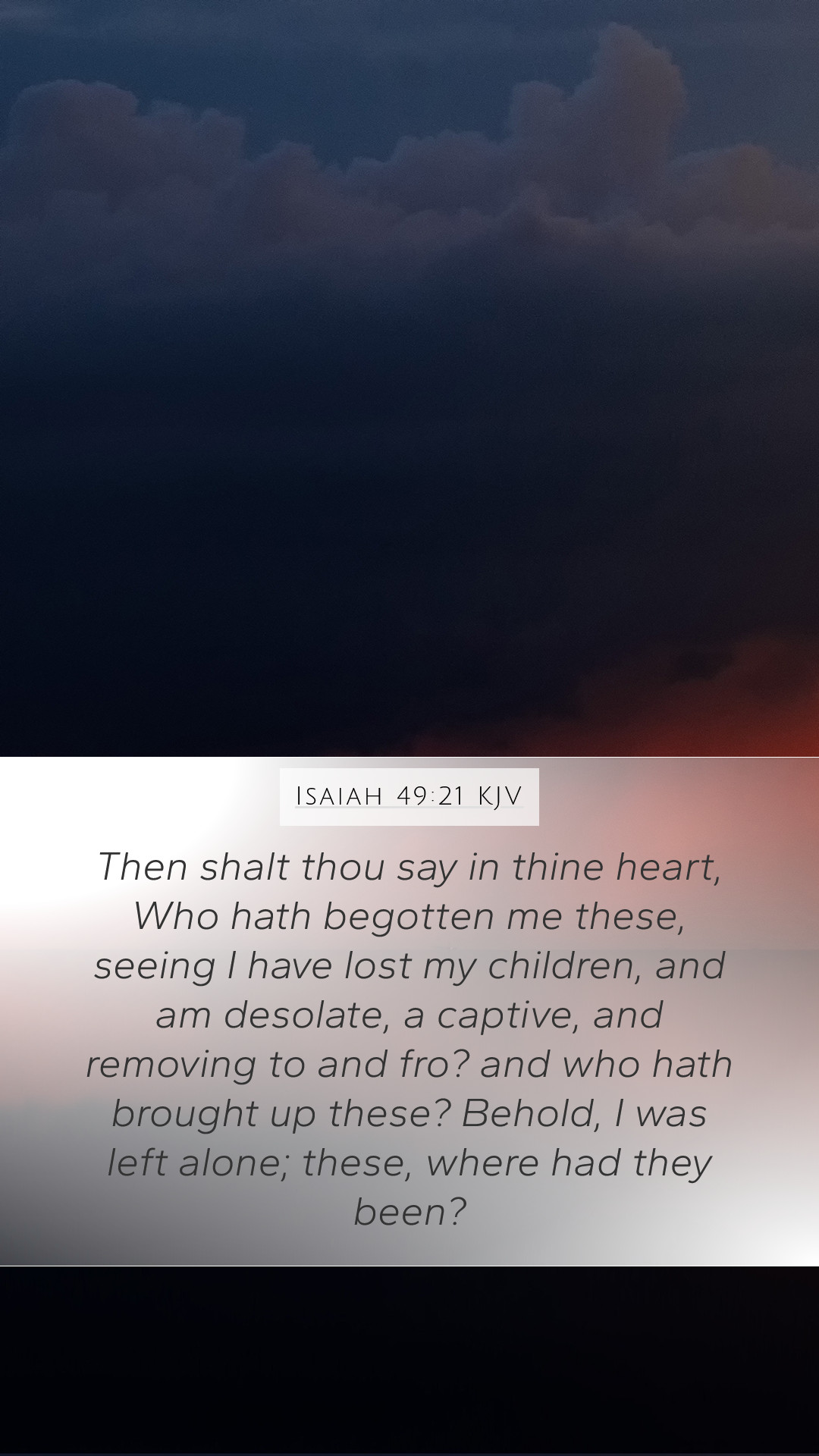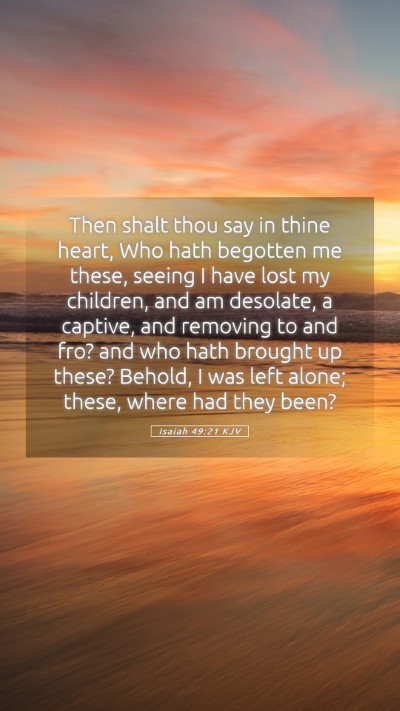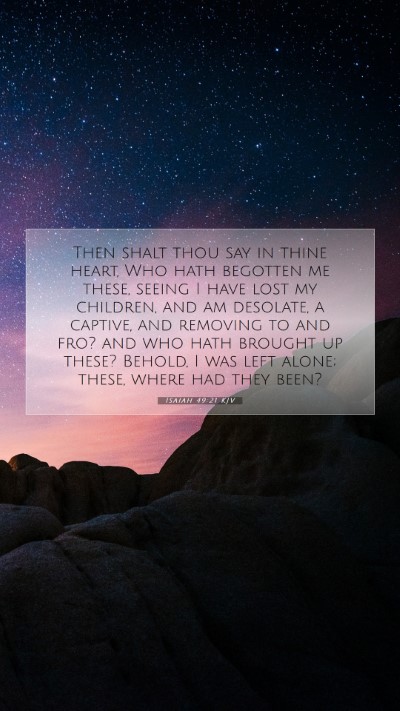Understanding Isaiah 49:21
Bible Verse: Isaiah 49:21 - "Then you will say in your heart, ‘Who bore me these? I was bereaved and barren, exiled and rejected. It is I who brought these up? Where have they been?'”
Overview
Isaiah 49:21 presents a profound moment of reflection and realization for the people of Israel. This verse encapsulates themes of identity, redemption, and the restoration that God promises to His people. Below is a detailed exploration of this verse through various public domain commentaries, providing insights into its meaning, context, and application.
Contextual Background
From a historical perspective, this verse falls within Isaiah's prophecies concerning the suffering servant and the future restoration of Israel. The context of this passage is critical for understanding its implications for both the Israelites of Isaiah's time and the contemporary reader.
Isaiah in Historical Context
During the time of Isaiah, the nation of Israel was facing exile and oppression. The imagery in this verse speaks to the feelings of abandonment and loss prevalent among the people. The mention of bearing children reflects a yearning for new life and hope amidst devastation.
Bible Verse Meanings and Interpretations
-
Matthew Henry's Commentary:
Henry explains that this verse reveals the stirrings of hope in the hearts of Israel as they begin to recognize the gifts of God despite their current hardships. The rhetorical questions highlight a shift from despair to acknowledgment of divine providence.
-
Albert Barnes' Notes:
Barnes emphasizes the fulfillment of God's promise to restore Israel. He interprets the verse as a moment of awakening where the people realize that despite their suffering and seeming abandonment, God has not forsaken them. The children mentioned symbolize the restoration of Israel as a nation.
-
Adam Clarke's Commentary:
Clarke notes that the questions posed in this verse convey a sense of surprise and wonder. The underlying message is one of reassurance; God will bring forth new life and hope to His people, indicating that their period of sorrow will be transformed into joy.
Significance and Application
This verse, while rooted in a specific historical context, has profound implications for contemporary readers, offering rich insights into God's faithfulness and the hope of restoration. The questions in the verse encourage introspection about one's own experiences of loss and the search for meaning in times of adversity.
Key Themes for Reflection
-
The Nature of God's Care:
The verse illustrates the nurturing aspect of God's relationship with His people; despite periods of barrenness or exile, He remains the source of life and hope.
-
The Journey from Despair to Hope:
These rhetorical questions signal a transformation, suggesting that individuals may experience renewal and restoration as they turn back to God.
-
Community and Identity:
This verse also speaks to the communal identity of Israel, stressing the importance of collective hope and the joy of recognizing the blessings within the community.
Related Bible Verses
- Isaiah 54:1: "Sing, O barren woman, you who never bore a child; burst into song, shout for joy, you who were never in labor; because more are the children of the desolate woman than of her who has a husband.”
- Isaiah 43:5: "Do not fear, for I am with you; I will bring your children from the east and gather you from the west."
- Jeremiah 31:16-17: "This is what the Lord says: 'Restrain your voice from weeping and your eyes from tears, for your work will be rewarded,' declares the Lord."
Conclusion
Isaiah 49:21 serves as a powerful reminder of God's unwavering presence and the hope He offers His people, even amid suffering and loss. It invites readers to reflect on their own lives, recognizing how God may be working to restore and renew them in their times of need. This verse encourages meaningful discussion in bible study groups and can be a focal point for those engaging in online Bible study. The insights provided here aim to deepen your Bible verse understanding and enhance your scripture analysis skills.


